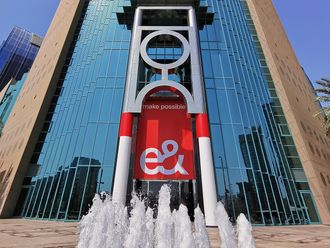Making money an easy subject? If you thought that a smart suit and a pair of cufflinks is all you need from an adviser, think again. Overwhelming evidence from within the industry is that not many people actually know what’s going on in markets . In the UAE, that evidence is increased by the number of “financial advisers” allowed to give investment advice without the faintest idea of what an investment is. How vulnerable is the layman investor?
First to confusion. Two pieces of evidence tell the tale. Piece Number 1: Produced in 2012, the excellent analysis of the Financial Crisis “Money Power and Wall Street” (Frontline) , starts with: “the clouds are still hanging over the global economy and they are still filled with risk”. A subsequent refrain hides continued public angst that since the Lehman’s collapse, “Wall Street got bailed out and Main Street didn’t”.
This might sound like the backdrop of another Hollywood Movie, targeted at Americans, but the reality is that for “Main Street” read “Your Street”. You have not been “bailed out” for market losses; markets remain risky; and yet you still have an onerous obligation to your family to build a Retirement Pot that improves your purchasing power. Whatever the cuff-linked brigade say, this challenge is not easy.
Piece of evidence Number 2: Two slides provided by Emirates NBD which highlight the practical difficulty of making money in a world that seems to say, whatever goes up must come down. Take 2011 performance results. The place NOT to be in 2011 was Indian equities with a loss of around 40%. In 2012 though, you would have got nearly 30% of that loss back although you are still down 28% if early 2010 was your start. Such is the negative magic of downward deviation.
The place to have been in 2011 was the VIX Index, the so-called fear index will have produced a first place finish on the slide for 2011 and followed that with a last place finish for 2012. Crude Oil close behind on the good-to-bad scale. Only Gold seems to have kept a steady-state sort of profile which masks the underlying fears led by political impasse in the US ( Fiscal Cliff 2); A plausible “Grexit” as a Greek fall-out is being termed; Chinese slowdowns; shale versus oil, and so on.
AND SO TO THE ADVICE: What to do?
Inaction is not a solution. With cash interest rates habitually under the rate of inflation holding your cash in bank accounts will mean that your savings WILL erode purchasing power. Money needs to be worked.
For the layman investor, I pull out the usual hobby horse for times of stress: the multi-asset manager. The likes of Momentum Asset Manager; Emirates NBD; and Russell Asset Manager all fit this mould.
Tactics and research decisions will differ from brand to brand, yet the essential characteristic of the multi-asset manager remain similar. Firstly, they produce one-price solutions for a range of decisions across a range of asset classes. In portfolio-speak, the multi-asset managed funds are well diversified .
Secondly, the managers tend to look at the macro-economic first. This means that leading global trends and issues will force them into a view on each asset class and they weight their decisions accordingly. The fund managers are then selected after the asset allocation decisions have been made. The “old name” for this approach was “manager of managers”; it still describes a core function of the multi-asset manager approach.
Thirdly, most of the multi-asset manager brigade offer risk adjusted alternatives to distinguish results for conservative, balanced, and more aggressive versions.
Multi-Asset Manager: The risks.
To work, managers need to hold strategic positions for a period of time, where time means 3 to 5 years and not 6 to 12 months (speculation). The downside is that fund managers are rarely likely to win performance “first prizes”. They dont aim to win that prize, and will NOT be near the winners rostrum for any particular year. However, the upside on performance is, and especially in these confusing times, they provide professional solutions which seek to avoid losing money. In that quest, they have a significant fan club.
The writer is CEO of Mondial Financial partners. Opinion expressed here is his own and do not necessarily reflect that of Gulf News.












